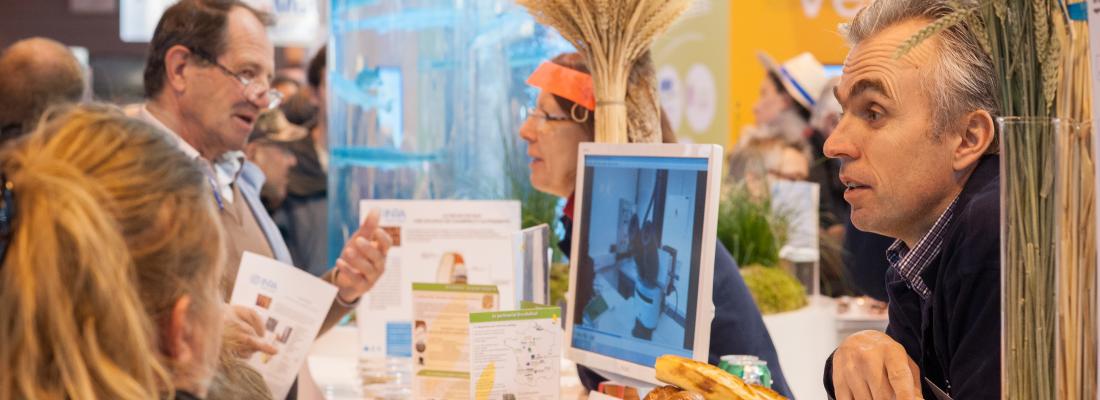Reading time 5 min
Humanities and social sciences
Updated on 02 January 2020

With a PhD or an engineering degree from a Grande École
Example I Researcher in international and spatial economics
INRAE researchers in international and spatial economics develop models, come up with predictions, and study economic patterns via the use of statistics, probability, econometrics, and mathematics. Their work occurs at both the regional scale and the international scale. International trade plays a key role in many concerns related to agriculture and the environment (e.g., food security, climate change, soil use). Using models to decipher the mechanisms that explain economic patterns, researchers can come up with measures that will improve production systems in general and that will inform decisions regarding which production systems should be used where.
In general, researchers must demonstrate the value of their scientific results. Value may be expressed in different forms depending on the field. Most commonly, researchers describe their discoveries in scientific publications, an important medium of communication within the scientific community. They often share their scientific expertise with national or international policy makers and/or the national or international scientific community. Researchers also train and teach students. Additionally, they may be responsible for managing technical, financial, and human resources.
| Degree requirement(s) | Portraits | Job offer |
|---|---|---|
| PhD (or equivalent) | Check out the portraits of our researchers (coming soon) | See our job postings |
xample I Research engineer in data production, processing, and analysis

INRAE research engineers in data production, processing, and analysis work with institutional research teams in the humanities and social sciences or with outside parties requesting assistance. They guide the use of research tools. Their main tasks are proposing approaches that are suited to research objectives; guiding studies; ensuring the proper development of databases and/or corpora during projects; developing query and interface tools; implementing methods or protocols for collecting data; and analysing data and interpreting the results.
Research engineers have a variety of responsibilities. For example, they must produce generic or operational knowledge, develop scientific tools for researchers to use, build socioeconomic and institutional partnerships, and provide expertise. Additionally, they may be responsible for managing technical, financial, and human resources.
| Degree requirement(s) | Related fields | Portraits | Offres d'emploi |
|---|---|---|---|
| PhD or engineering degree from a grande école (or equivalent) | Any field in the humanities and social sciences that uses quantitative data analysis | Check out the portraits of our researchers (coming soon) | See our job postings |
With 3–5 years of higher education
Example I Engineer in data and survey production, processing, and analysis
INRAE engineers in data and survey production, processing, and analysis are responsible for designing and implementing full protocols or partial protocols for collecting and processing data and/or corpora. They carry out this work as part of research projects and studies. Their main tasks are coordinating efforts to produce and collect information (e.g., laboratory data, field data, corpora) using a suitable approach; carrying out data assessments; coordinating data processing; helping analyse the results; designing and structuring databases; and writing methodological reports.
They help improve the experimental systems and protocols that they employ. They ensure that research methods and objectives are a good fit; they also analyse and communicate research results. Additionally, they may be responsible for managing technical, financial, and human resources.
| Degree requirement(s) | Related fields | Portraits | Offres d'emploi |
|---|---|---|---|
| Undergraduate degree, master's degree (or equivalent) | Any field in the humanities and social sciences that uses quantitative data analysis | Check out the portraits of our researchers (coming soon) | See our job postings |
